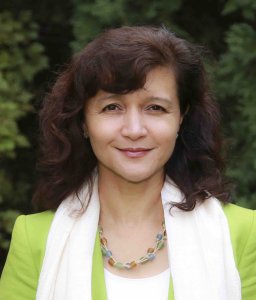Presented By: Institute for Energy Solutions
IES Energy Seminar Series - The Social Impacts of Energo-Waste
Kelly Askew, University of Michigan, Anthropology

Abstract:
In this paper, my co-author Sisty Basil and I explore the social impacts of energy-related detritus, what we call “energo-waste,” from failed or outmoded energy projects in rural Tanzania. The problem of electronic waste (e-waste) has captured public and scholarly attention, especially in sites like Agbogbloshie in Accra, Ghana with its dystopian vista of discarded computers, televisions and other electronic trash. Energo-waste creates similar yet different problems and takes many different forms. Some can easily be classified as e-waste, such as solar lanterns that no longer provide light, power banks that no longer provide back-up power for mobile phones, or batteries for solar panels that no longer store energy. These can accumulate in the corners of rooms or in trash pits behind homes to be buried or burned, leaving a negative environmental impact either way. Others continue to mark landscapes with their presence: windmills and solar mini-grids that no longer produce power, electric poles that no longer transmit or distribute power, mini hydro projects decommissioned for being financially unviable. Far less obvious forms of energo-waste include the tens of thousands of acres appropriated from rural smallholders and transferred to foreign companies for the purpose of growing jatropha, a crop once hailed as a clean biodiesel option but which quickly fell out of favor leaving large-scale land acquisitions sitting idle; or the tens of thousands of acres of forest sequestered for carbon offset projects (REDD+) that similarly deprived local communities of their use but are now labeled “another failed conservation fad.” Drawing on long-term community-engaged work, participant observation and interview data, we ask: What are the social impacts of and responses to energo-waste? What harms and/or benefits does it produce, and for whom, both in the present and for the future?
Biography:
Kelly Askew is the Niara Sudarkasa Collegiate Professor of Anthropology and Afroamerican & African Studies at the University of Michigan. Current research projects and publications focus on rural water and energy access, postsocialist poetics, pastoralism, Indigenous political movements, and land rights in Tanzania. She is also an award-winning documentary filmmaker.
In this paper, my co-author Sisty Basil and I explore the social impacts of energy-related detritus, what we call “energo-waste,” from failed or outmoded energy projects in rural Tanzania. The problem of electronic waste (e-waste) has captured public and scholarly attention, especially in sites like Agbogbloshie in Accra, Ghana with its dystopian vista of discarded computers, televisions and other electronic trash. Energo-waste creates similar yet different problems and takes many different forms. Some can easily be classified as e-waste, such as solar lanterns that no longer provide light, power banks that no longer provide back-up power for mobile phones, or batteries for solar panels that no longer store energy. These can accumulate in the corners of rooms or in trash pits behind homes to be buried or burned, leaving a negative environmental impact either way. Others continue to mark landscapes with their presence: windmills and solar mini-grids that no longer produce power, electric poles that no longer transmit or distribute power, mini hydro projects decommissioned for being financially unviable. Far less obvious forms of energo-waste include the tens of thousands of acres appropriated from rural smallholders and transferred to foreign companies for the purpose of growing jatropha, a crop once hailed as a clean biodiesel option but which quickly fell out of favor leaving large-scale land acquisitions sitting idle; or the tens of thousands of acres of forest sequestered for carbon offset projects (REDD+) that similarly deprived local communities of their use but are now labeled “another failed conservation fad.” Drawing on long-term community-engaged work, participant observation and interview data, we ask: What are the social impacts of and responses to energo-waste? What harms and/or benefits does it produce, and for whom, both in the present and for the future?
Biography:
Kelly Askew is the Niara Sudarkasa Collegiate Professor of Anthropology and Afroamerican & African Studies at the University of Michigan. Current research projects and publications focus on rural water and energy access, postsocialist poetics, pastoralism, Indigenous political movements, and land rights in Tanzania. She is also an award-winning documentary filmmaker.